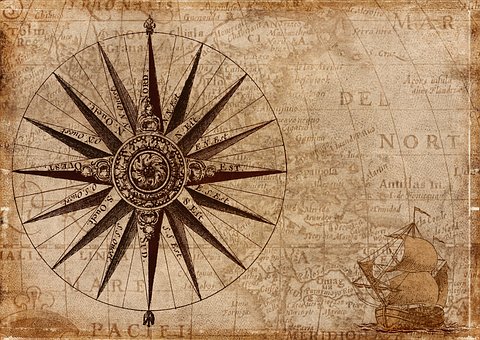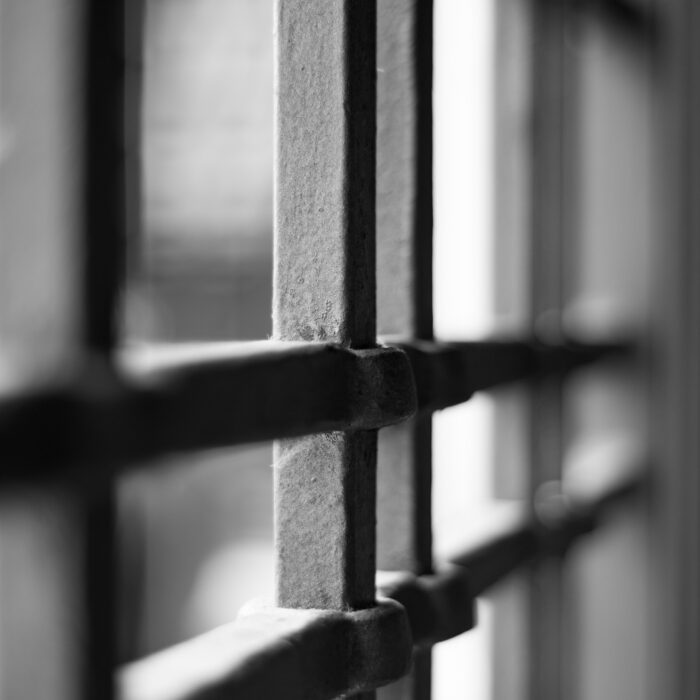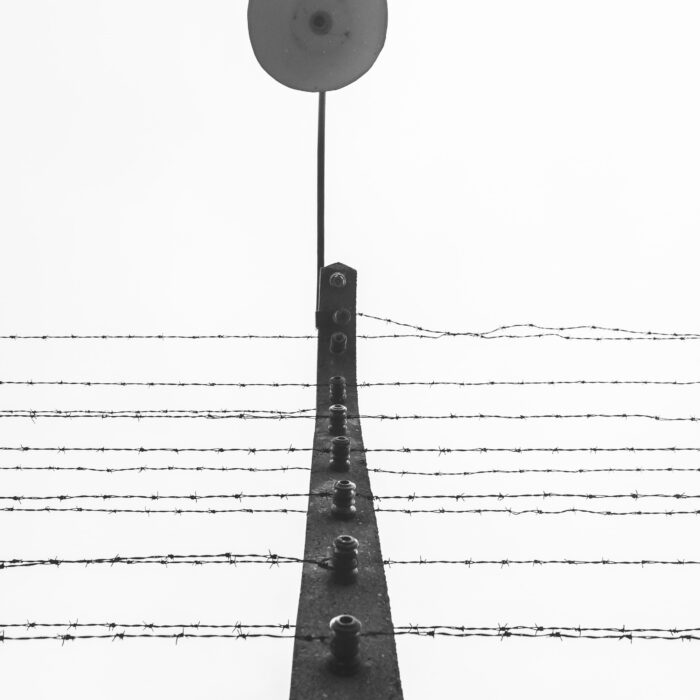You have no items in your cart. Want to get some nice things?
Go shopping
“. . . down to the sunless sea . . .” –S.T. Coleridge
124 was spiteful he says. It is one of those cold mornings in May. Time is wobbling the way compass points hover or spin for no rhyme or reason on a nautical chart.
“What in the world does that mean?”
“It gets swampier and swampier,” he says nudging me with a sly lazy wink.
About a year after the Xanadu incident I first met Christopher Columbus and his mountain of ‘maps.’ Big guy. He carried purpose in his stride and the wild look of a man with mean intentions. 124 was one root cause.
Mathematical impossibility I reckoned at the time, given that this muscular man with barbells for arms had to be at least six hundred years old give or take a few decades, till he showed me his squished and water stained non-laminated ID peeled from out of the thick folds of his dun doublet. True enough it bore an address on Maple Street two blocks down from where I lived or formerly lived on the edges of a New England woods. He wore auburn locks, a mangled red beard, a walrus moustache, a pleated overcoat and black galoshes and his face was as round and ruddy as a grapefruit.
At last, after what seems hours, but may, I now realize, have been minutes, listening to music on my cell phone on blast, so, technically, I may have been deaf and blind “Sirius has just risen,” he says, nautically incensed, “I must return.”
Then, since this is our first encounter he tells me somewhat conspiratorially that his name in full is Christopher Corleonus Columbus and that he has a ghost of the seas in mortal danger at 124 to whom he must hasten. I smile awkwardly trying to connect. I am forced to admit mine is an equally exotic sounding Mara Amarillo Marle.
“I have searched all these islands and places,” he says taking firm jabs at a cartographer’s maps, clutched by the armloads against his heavy chest, loads of faded manuscripts with lines and compass markings. Peering into them it is as if I am back in Xanadu, the day I fell through the ice.
I want to know more of the catamarans he has sailed, the outriggers, the Cyclades Map of Elysium, King Arthur’s wonder sword Excalibor forged in the island of Avalon, map of the island of Los Jardines, the barges he has commandeered, how he has managed mast and mizzen in storms, crossed the daguna-infested mountains of madness.
“Like walking a dog,” Christopher says with another wink and a cocky sneer, “except 124. It’s haunted mad.”
I figure I should keep hanging out with him, pretending I’m interested. Ghostly visitations have been a history in my family for generations. I have been playing pretend long before Xanadu. What’s another year of another round for what lies beneath the ice?
As if reading my thoughts, he says the haunting comes from 124. Many of the islands and some continents turned ghosts, disappearing without a trace. They will never be found, he says. Some atolls do not want to be found either, he says, the barrier ones. When they do not want to be found it’s open season. They turn spiteful. They shift, they move, they sink, then they vanish. 124 was different he says, till it came alive.
If they don’t exist, they don’t exist, I counter, the same like Xanadu, the same like its original Atlantis, the same like the Taino’s Guanahani, floating beneath. He shakes his head vehemently, his flaming locks flip-flopping between his cauliflower ears. It is my wish to know how he can tell they’re there, these places, if they are no longer there.
He gives a snort. He thrusts the maps in my direction, arms extended. I hesitate momentarily. He has a glint in his eye to match his snarl. I am reluctant to touch his nautical charts. We discuss 124, ship wrecks, many more voyages of discovery. He etches intricate tunnels of routes with one calloused finger. His frustration is 124. He sits back lost in his own handiwork. Then he starts over.
If only Christopher can show me a map of the Island of Thule. Or a map of the Island of Javasu. Or the Isles of Auroras. He grows impatient. He wants to know why the rigged xebecs that sail to the moon are not available free for explorers like him. There are none available even affordably priced, he says, revealing his ability to adapt to our ways.
One reason why I picked my small dhow in a Thrift Store, to sail to Xanadu, I say.
“This is how you chart a course to the moon,” he says, holding up another map, referring at intervals to his ship’s log, his leather-bound dairio and his palm-sized compass rose which never leaves the insides of his pantaloons. He is not ready to share with me his compass, not even touch it, his beloved rose of the winds which will lead him to 124.
The moon is a whole lot further away I say with an innocent look on my face. I wish he will tell me of Vega, how brightly she shines in the starry heavens, or the sound of the whales, or the cries of the dolphins. I want to find a way to the golden gates of Atlantis. I want to hear the siren’s songs.
Instead he talks to me of the thousands of shifting islands, the movement of ghost ships, the hauntings, the chickadees in the foothills going chee-chee-chee, earth vanishings in lumps and bits like disappearing water-spouts, the allure of the moon and counting the stars in the night sky, because, he says, they too vanish. The day is set when the moon will vanish, he says. He has been a moon voyeur the greater part of his life he says. More than ever I wish to go to the moon.
But first he says he has to lift the curse at 124 before vanishing himself. He fumbles underneath his overcoat like Moxie, my sister’s Bernese mountain dog relieving a great itch. I believe he must have on his inner sleeve or somewhere well concealed upon his broad six-foot person a wizard’s wand such as only Merlin would use when necessary, which makes one invisible in an instant. Instead he says by some strange alchemy of the philosopher’s stone he has stumbled upon a similar wonder ring of invisibility far superior than the one found at Gyges, which he has every intention of using at the right time. The ring is concealed in his compass!
***
The second time I run into Christopher Columbus he has grown swarthier and more unkempt. His size has tripled. His orange hair is tucked into an orange stretch beanie. The glint in his eye is more pronounced. So is his snarl.
“124’S NOT A FAKE! NEVER!” he yells distractedly. It turns my world upside down.
I have been building my small universe around movies and internet games and the hidden door, aspiring for my return to Xanadu. My universe crumbles when he appears, spider-webbing like the ice when it cracked under my weight the first time.
“Are you lost, Christopher?” I ask, a fraction timorously.
“1-2-4!” he yells over and over. He is not willing to stargaze the maps as he had at our first meeting, or search his multi-point windrose compass for 124, or point me the way to Erdapfel–the ball of our globe in two parts. It perplexes me.
Rummaging, grasping his stockpile of maps and charts he wants to know where he can find a sea-worthy carrack with masts and a sail and a sea-faring crew in these tough times. A smaller caravel with lateens would do. Matter of life and death he says. He does not mean to scare me he says but he cannot find 124. Nor can he find Mirabelle the mystical oracle board of numbers past present and future, to remove the curse.
I can feel the prickles inch down my neck into my ribcage. I try to focus on his deep green eyes the color of the seas. I like his fuzzy brown liquor look. But I want to know about the dodos and mammoths. I want to know of his early encounters with the strong and fierce Amazonian women. I know just the oracle board he speaks of with such vehemence and focus. I know where it can be found.
What he means is the ouija board and I know just the one. Mine! One that talks in real oracle speech. It belonged to my great grand-aunt. It has been in our family for ages.
It makes new memories. The ouija-inspired murder of her culinary cook favorite haunts me to this day. Ouija spirits whom she had invoked from beyond the veil haunt limited family groups to this day. They found ways to play risky games. They found ways to communicate to her the tools of the devil himself. What Christopher requires is my great grand-aunt’s ouija board. The alphabets and numbers will self-navigate, settle 1-2-4 squarely somehow and the hauntings.
If only we can reach a mutual settlement. If only we can exchange tools with all possible speed just might work. Planchette for compass. It’s frustrating how they’re interlocked. If only he would trust me enough to hand me his windrose, I would happily give him my beautiful hand-carved planchette, the one that has invoked several bodiless spirits for my great grand-aunt. More importantly if only he will show me the map of the Greek islands of Abacus or the map of Ariadne in the Aegean Sea, or the island of Babeque, or the lost continent of Kumari Kandam.
Instead he says the earth is the center of the universe, that the maps are not really real, nor are the cartographer’s charts, despite how closely he clings, that in many ways 124 is so like the extreme Cthulhu mountains, higher than the Himalayas, remoter than the Ural, so terrifying, yet so profound, so ghostly, so dogged in its persistence, he must find it for eternal peace.
I follow him to the local diner, my short legs trying to keep stride. I believe he wishes to speak of Gods and deities and malevolent entities and scantily clad women warriors. By the time we make it across the parking lot I’m finding it hard to remember this attractive green-eyed behemoth of a man smelling of guava and sweet ginger, whispering “1-2-4” lovingly in my ear.
At close proximity the markings on his face stand out like hardened frost. I ask him about the sickly pink scar standing out like wood rot on his forehead.
He says he has to clean up. He got kicked by a horse he says.
He sets his maps down. I do not touch any. Furrowing at his cartography exchange I want to know the trajectory of Lumpler’s Comet which had streaked in the night sky of 1493 in the Cantino world map, but I guess I’ll have to wait till he’s out of the bathroom.
***
Anywayz, the voices I’m hearing are the same which led me to Xanadu below the ice. Marooned Moon now needs tree incense . . . a cantata sung backwards, over and over. I’ve memorized the words.
The same bird, 124, I’ve counted, through the same windowsill, standing in the middle of the same overripe cornfield row, blood dripping talons, long dagger beaks the color of the overripe corn, hooded eyes spearing skyward. The whole situation of 124 has taken an incessant front seat pattern in my brain. I can see my great grand-aunt’s wooden ouija board of alphabets and numbers 0 to 9, her planchette tremble and move across 1-2-4, spinning thrice, even if I were blindfolded. It doesn’t stop.
I sometimes wonder if Christopher Columbus will show up again. Dark and swarthy, rakish in his own handsome way, with his quaint Lilliputian accent, weighted down by his maps. I could follow him to the moon, to the ends of the earth, to Xanadu. My last encounter did not end well. I would rather not meet him in a local diner, not after the magnitude of the water main break when he snapped the automatic faucet in two in the bathroom, ten years ago.
I did get a call once on my cell. The voice sounded a recording. It could have been Christopher. It kept repeating ‘1-2-4! 1-2-4!’ The voice wondered if I were dead. A ghost voice. We are connected that I have no control over.
My sister the cautious one tells me to return our great grand-aunt’s ouija board to where I found it in the crawl space under our house. It’s up to no good she says. She doesn’t know of Christopher Columbus. I have my planchette. Works just as good as a mariner’s compass. Spun thrice. Lots of logistics here. Lots of perils. But you gotta do what you gotta do. Wait up, 124! I’m on my way!
I want to tell him it’s all coming back, the realm of possibility, the lifting of the curse of a terrifying demon of the ouija board / oracle board, does it matter, at numbers 1-2-4, the point of exit on his compass when he ran into foul weather, regained the sea, and confused at best could never return despite a wide sweep of a large area of ocean. It is as if 124 never was. Thereon rising winds put him on doubtful courses. He is swamped, reframing the narrative of the islands that are his life, that are his home. I blame 124. He wants 124. I’ve found the point of compensation, the cure right before the ice closes over my head and I hear the voices sing Moon Marooned – the song that should be sung backwards to lift the curse, to rid 124 once and for all of the ghostly hauntings.
I will trace the route to Atlantis. An explorer never quits. This time it is I who will find Christopher Columbus again. And it won’t be over hard to obtain xebecs, or ghost islands, or mariner’s compass, or 124, his long lost spiteful at best dearly beloved.

Rekha Valliappan
Rekha Valliappan is an award-winning short story writer and poet. Her work has earned nominations for the Pushcart Prize and Best of the Net. Among the various literary and genre journals to publish her writing are Queen Mob's Teahouse, Bending Genres, Wilderness House Literary Review, Ann Arbor Review, The London Reader, The Blue Nib, Lackington Magazine, ColdNoon: Travel Poetics, The Saturday Evening Post, and other venues,
- Web |
- More Posts(1)




